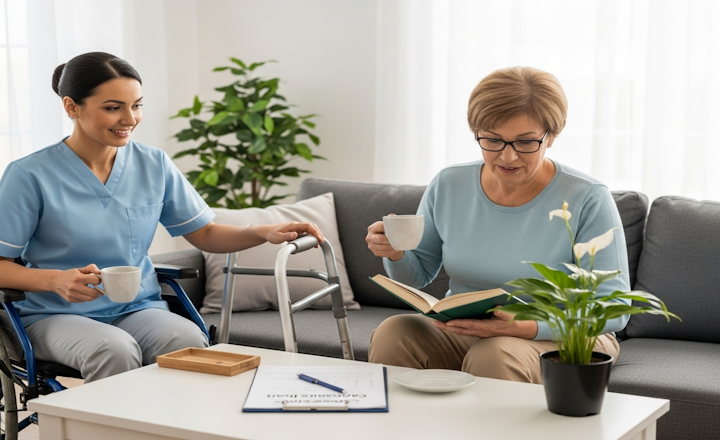
Living with a disability can bring unique challenges, but it doesn’t have to mean giving up independence or comfort. Today, more people are choosing to receive support in their own homes rather than in residential facilities, thanks to the flexibility and empowerment that personalised care offers. With tailored services designed to meet individual needs, disability home care provides a compassionate and practical way to maintain independence, improve wellbeing, and enhance quality of life.
Independence and Comfort in Familiar Surroundings
One of the greatest advantages of receiving care at home is the ability to remain in a familiar and comfortable environment. Home is more than just a place it’s filled with memories, routines, and a sense of belonging. Being able to stay in that space while receiving professional support can have a powerful impact on a person’s emotional wellbeing.
Personalised home care allows individuals to maintain their routines, preferences, and privacy. This familiarity reduces stress and helps people feel more in control of their daily lives, which is essential for confidence and independence.
Tailored Support for Individual Needs
Every person’s situation is different, and so are their care requirements. Personalised home care services are designed to reflect this. Whether someone needs help with daily activities such as cooking and cleaning, or more specialised support such as mobility assistance, medication management, or personal care, services can be adapted to match their goals and preferences.
The flexibility of in-home care means that support plans can evolve as circumstances change. This ensures that care remains relevant, effective, and respectful of each person’s unique needs and abilities.
Promoting Emotional and Mental Wellbeing
Receiving care at home can significantly boost mental and emotional health. Staying connected to familiar people and places helps reduce feelings of isolation and anxiety that can sometimes accompany care in institutional settings.
Personal carers not only provide practical help but also companionship. Regular interaction, conversation, and shared activities build trust and emotional connection, which are vital for overall wellbeing. This holistic approach supporting both physical and emotional health makes personalised home care an especially valuable form of support.
Greater Control and Choice
Personalised disability home care gives individuals more control over their lives. Rather than adhering to the strict schedules often found in care facilities, people can choose when and how they receive support. This autonomy is empowering and aligns with the person-centred approach encouraged by the National Disability Insurance Scheme (NDIS).
Participants can select their carers, determine their schedules, and decide which tasks they’d like assistance with. This flexibility not only ensures comfort but also fosters a sense of partnership between the individual and their support team.
Supporting Families and Carers
Home care doesn’t just benefit the person receiving support it also provides relief for family members and informal carers. Knowing that a loved one is being cared for by trained professionals allows family members to rest, recharge, and focus on their own commitments without feeling overwhelmed.
Professional carers can also offer valuable advice, share techniques, and provide emotional reassurance to families who are learning how best to support their loved one. This collaborative approach strengthens the support network around the individual, ensuring consistent and high-quality care.
Encouraging Community Connection
Remaining at home allows individuals to stay active and engaged in their local communities. With the right support, people can attend appointments, participate in social activities, volunteer, or simply enjoy outings with friends and family.
These interactions contribute to a greater sense of inclusion and belonging, something that’s central to living a fulfilling life. Personalised care providers often assist with transportation or community participation, ensuring individuals can maintain social connections and enjoy meaningful experiences.
Enhancing Long-Term Quality of Life
When care is provided in a way that respects personal preferences, supports independence, and prioritises wellbeing, it contributes to a higher quality of life. Personalised disability home care encourages positive lifestyle habits, consistent routines, and emotional stability.
Over time, this holistic support can lead to improved physical health, greater confidence, and a stronger sense of purpose. It allows individuals to live life on their own terms, achieving their goals while remaining surrounded by comfort and familiarity.
Final Thoughts
Personalised disability home care represents more than just practical support it’s about empowering people to live independently, safely, and happily in their own homes. With flexible services tailored to individual needs, home care helps maintain dignity, promotes emotional wellbeing, and enhances everyday life for people living with disabilities.
As demand for person-centred care continues to grow, it’s clear that this approach is helping redefine what independence and support can look like offering choice, control, and comfort to those who need it most.




